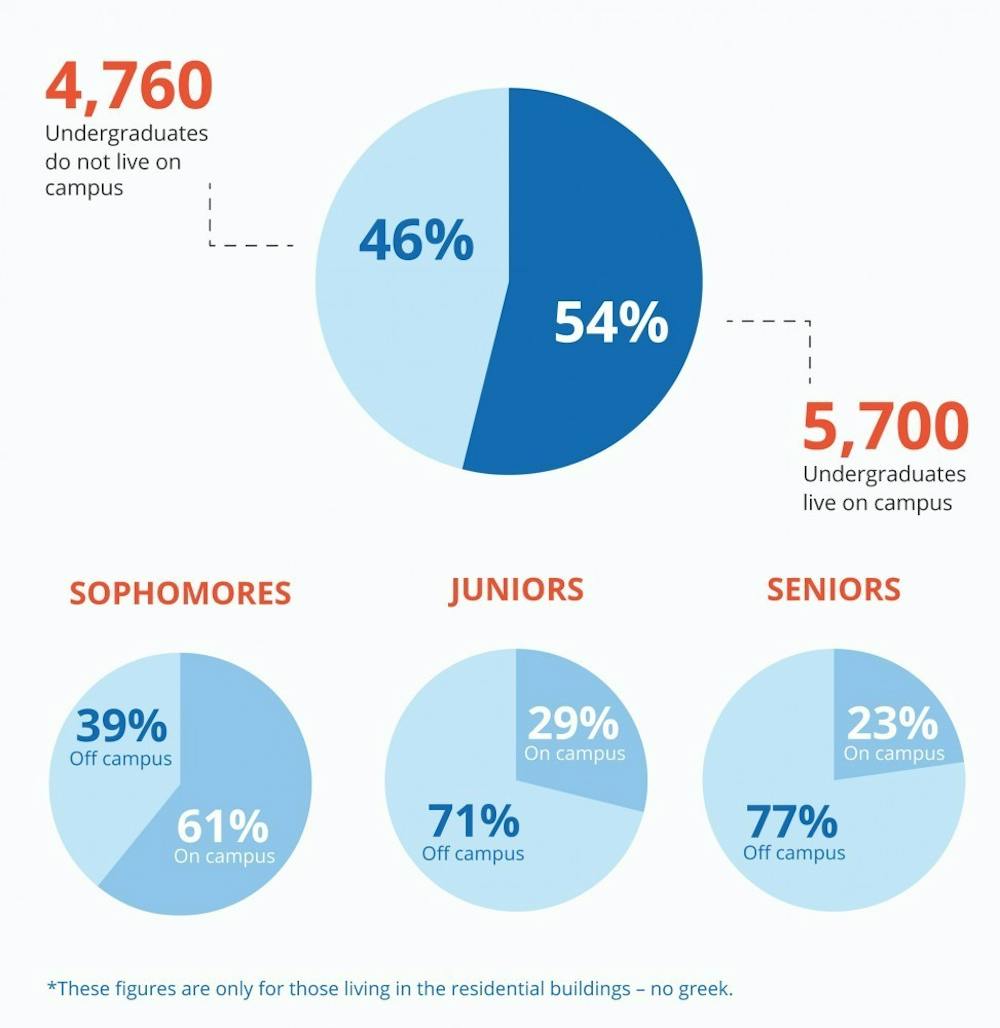
Rendering from Bohlin Cywinski Jackson Architects
When Penn's new policy requiring all sophomores to live on campus goes into effect in 2021, the University will need to provide beds for approximately 950 additional students who otherwise would opt to live off campus.
This timing of this policy is coordinated with the opening of New College House West, which administrators say will enable the school to enact the new housing policy.
But with only 450 additional beds in NCHW, and with other college houses at near full capacity, Penn will need to take steps if they would like to ensure no upperclassman is denied on-campus housing. In order to accommodate, Penn officials say they would convert triple rooms into quads to house additional students in the high rises.
Even if the number of upperclassmen who want to live on campus suddenly rises, Executive Director of Business Services Doug Berger said the University can adjust room types to make space for more beds. For example, some three-bedroom apartments could house either three or four students.
“Right now, there’s roughly, say 780, 790 beds in each high rise. We could go up to 800. We could go up to 810,” Berger said. “It depends on the demand of how many students want to live on campus for the third and fourth year.”
Penn currently has about 6,000 bed spaces in college houses, Berger said. Three percent of unoccupied on-campus rooms are not available for students. These vacancies are usually reserved for sudden changes, such as study abroad leaves. Aside from that reserved space, all college houses are at full capacity.

While all freshmen are required to live on campus, only around 61 percent of sophomores chose to live on campus in 2017. Among juniors and seniors, the percent of students living on campus traditionally shrinks to around 20 to 25 percent, Director of Communications and External Relations Barbara Lea-Kruger said.
Berger estimated that at about 2,400 students per class, Penn will need at least 4,800 total beds for freshmen and sophomores in 2021. Including the new space available in New College House West, this will leave 1,650 spaces for upperclassmen.
In 2017, about 1,724 juniors and seniors lived on campus, but Berger said that number would not be affected by this policy and that Penn would be able to accommodate all of them.
“We don’t think that we are going to be forcing anybody off campus that doesn’t want to be off campus," Berger said. "It’s going to have very little effect on the College House program as far as the three-year, four-year houses."
Wharton sophomore Ria Gandhi, who lives in an apartment in Harrison College House with two singles and a double, said that adding spaces into her type of room is impractical due to its small size.
Gandhi added, however, that four-bedroom apartments, which tend to be larger, may be able to house additional bed spaces.
"I think the rooms are already pretty tight, so if they are planning on changing them to quads from triples, I'd be concerned about that," graduate student and Rodin College House graduate associate Jessica Adedipe said. "There's not much space for people to really have privacy or to be comfortable."
College sophomore Anish Welde said he had a single that was converted into a double. He commented that the room was small and he did not have a great experience.
Referring to the University's potential decision to make triples into quads to increase bed spaces, Welde said, "I don't know if that's the best idea, to be honest. I think it's probably a bad idea."
Berger said graduate student housing, located at Sansom Place East, will not be affected at all by the new policy.
The Daily Pennsylvanian is an independent, student-run newspaper. Please consider making a donation to support the coverage that shapes the University. Your generosity ensures a future of strong journalism at Penn.
Donate







